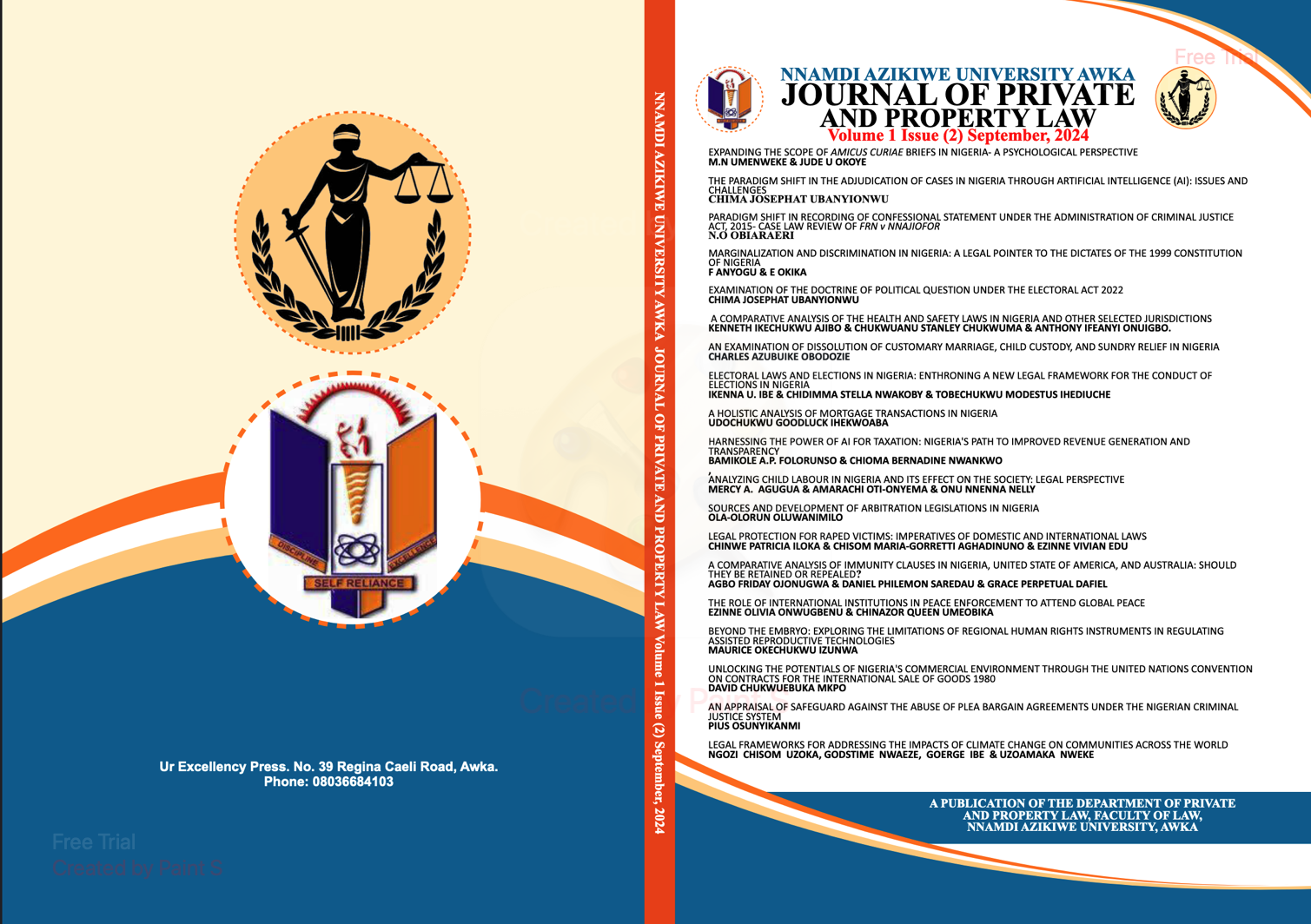A COMPARATIVE ANALYSIS OF IMMUNITY CLAUSES IN NIGERIA, UNITED STATE OF AMERICA, AND AUSTRALIA: SHOULD THEY BE RETAINED OR REPEALED
Keywords:
Comparative, Immunity Clauses, Nigeria, United state of America, Australia, Retained or RepealedAbstract
This research paper provides a comparative analysis of immunity clauses in Nigeria, the United State of
America, and Australia. Immunity clauses are provisions in statutes or constitutions that exempt certain
individuals or entities from legal liability. The paper examines the historical development, scope, and
application of immunity clauses in each jurisdiction, highlighting the similarities and differences. The
research reveals that while Nigeria’s immunity clause for its potential to shield public officials from
accountability, the US and Australia have more limited and nuanced approaches to immunity. It is a right
peculiar to some individual or body, an exception from some general duty or burden, a personal benefit
granted by law contrary to the general rule. It is recognized even by the International Court of Justice.
Section 308 of the Constitution of Federal Republic of Nigeria 1999 (as amended) prohibits in clear
terms, the commencement of civil and criminal proceedings against The President, Vice President,
Governors and Deputy-Governors in their personal capacities; the Nigerian style of immunity is absolute
in the sense that the beneficiaries of this constitutional immunity are excluded from both civil and
criminal proceedings in personal capacities while in office. It is “Ratione Personnel”. Immunity clause
was accepted in the constitution for the purpose of protecting the dignity of the offices of those exempted,
not the necessarily the individual office holder as such, so as to check a floodgate of law suits, some of
which might be frivolous, that may impair government functions and cause unnecessary political
distraction. It was meant to provide the incumbent a free hand and mind to perform the duties and
responsibilities of his office without distractions from litigation. The “immunity Clause” has generated a
serious national debate as to its retention or removal from our Constitution. This paper using the
doctrinal approach, critiqued the provision of immunity clause in the Constitution, examines its pros and
cons and recommends ways of curing the defect so as to promote the rule of law which is characterized by
the doctrine of equality before the law under which every citizen of a country, no matter how highly
placed is subject to the authority of the same law. It was recommended that the immunity clause should
not be expunged from the Constitution but rather be qualified and retained. It should also not be extended
to any other arm of government.

